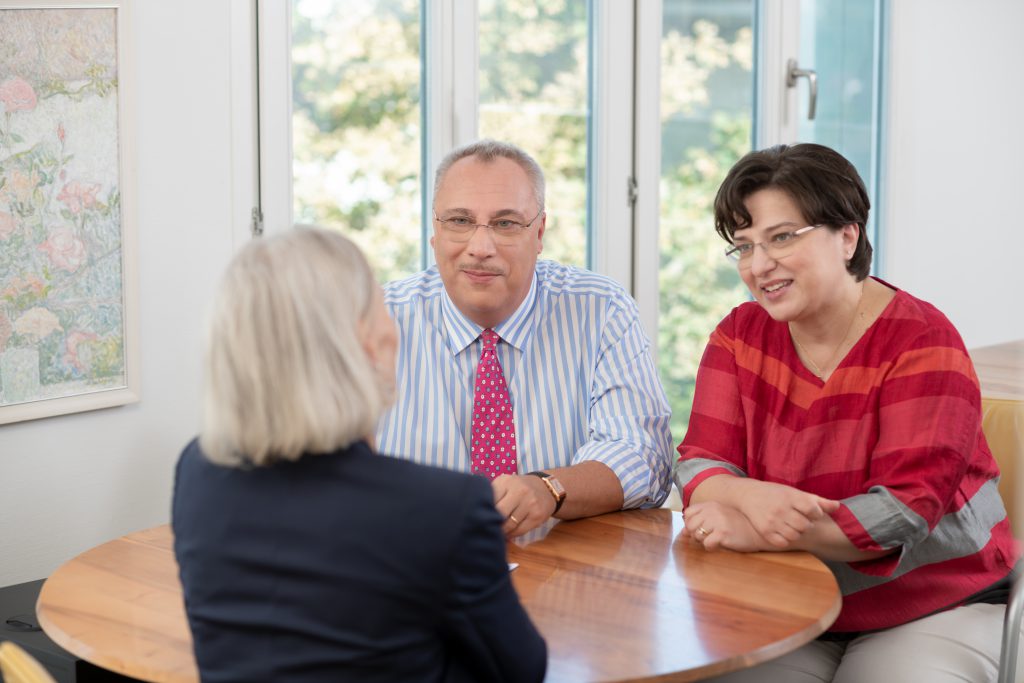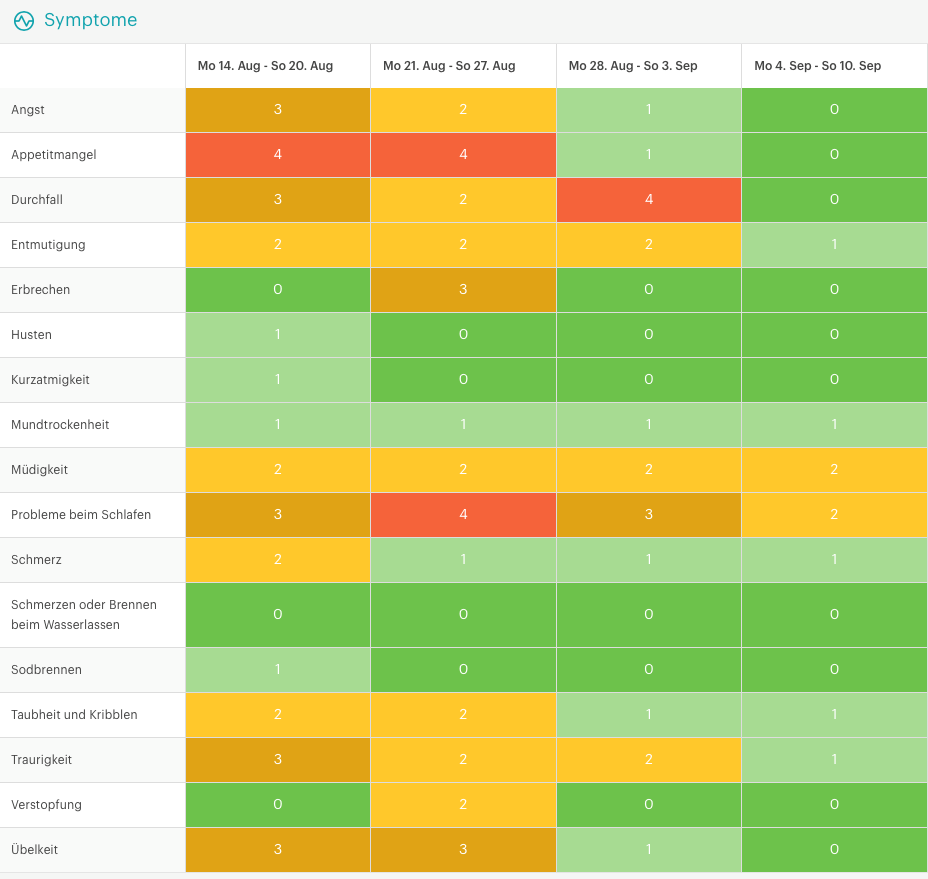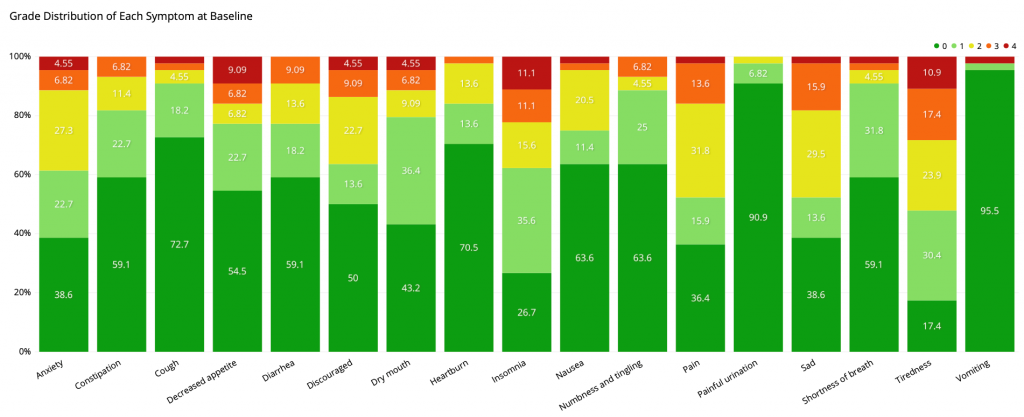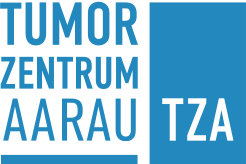The Multinational Association for Supportive Care in Cancer (MASCC) has put it in a nutshell in its motto: “Supportive care makes excellent cancer care possible”. Without optimal prevention or treatment of side effects, modern oncological therapies can be very toxic and stressful. “Supportive care” therefore refers to supportive care in the context of tumor-directed therapy, which aims at the best possible tolerability of the therapy.
Optimal Supportive Care deals with the avoidance and treatment of:
• Nausea and vomiting
• Blood count changes such as anemia or low white blood count
• Prevention and treatment of cancer or therapy-associated infections
• Mucosal side effects (mucositis)
• Diarrhea, constipation or passage disorders
• Loss of appetite, weight loss
• Sensory disturbances in fingers/hands and toes/feet as a result of therapies
• Sensory disturbances in fingers/hands and toes/feet as a result of therapies
• Tiredness and exhaustion (fatigue)
• Pain
• As well as many other problems
These are common side effects of oncological therapies, the past most frequently after chemotherapies but nowadays they also occur after molecularly targeted therapies or immunotherapies. Unfortunately, many of these complaints are also occasionally symptoms of advanced tumor disease. Therefore, optimal supportive care is closely interlinked with good palliative therapy, but supportive care is just as important in curative situations.
Good supportive care requires a lot of clinical experience and tact. It is at least the same challenge to give an optimally dosed, effective but as well tolerated treatment as possible, as to select the best oncological therapy.


Supportive care with us at the Tumor Center
Our Supportive Care Team consists of specially trained and specialized nurses and doctors. If you have any questions about our supportive care offer, please do not hesitate to contact our secretariat: sekretariat@tumor-zentrum.ch .
Role of patient-reported outcomes in supportive care
In recent years, multiple studies have shown an advantage for early detection of side effects of therapy or progressive tumor symptoms. Typically, patient assessments, so-called “patient-reported outcomes” (PRO), come into play in these studies. Here, patients report on their condition at regular, usually weekly intervals – on computers, tablets or smartphones.
These studies have shown that early detection and treatment of problems in patients with advanced diseases has extended life expectancy by up to 7 months just by treating problems earlier than with conventional oncology care. In addition, of course, the quality of life improves as well due to decreasing symptom load. This is a significant gain in lifetime with a good quality of life in very advanced tumor situations. By the way, all these studies were carried out in large cancer centers where excellent supportive care was already standard, so patients only conventionally cared for in the control arm were already excellently supported. In the Anglo-Saxon countries, electronic PROs have been integrated into medical records in recent years and have become the standard.
Since the presentation of these studies at ASCO in 2017, we at the Tumor Center Aarau have routinely recorded “patient-reported outcomes” (PRO) in many clinical situations. In Switzerland, this is still a pioneering achievement, PROs outside of clinical trials are regularly recorded in only a handful of centers, mainly in French-speaking Switzerland.
The Tumor Center Aarau uses an app that has been individualized and adapted to the needs of our patients. Symptoms can be shown in the history, as shown in the following example. You can also see how certain symptoms can get better over a short period of time:

The decisive factor in the case of symptom worsening is that an appropriate supportive therapy is initiated as soon as possible. If this takes place using electronic “patient-reported outcomes” (PRO), we already have data that the prognosis of our patients in Tumor Center Aarau is significantly improved.
Many oncology patients have problems or symptoms from the outset that need to be addressed quickly. The decisive factor in the case of symptom worsening is that an appropriate supportive therapy is initiated as soon as possible. In this image you can see that certain symptoms such as pain, loss of appetite, nausea, anxiety and sadness/depression as well as insomnia are present in a large number of patients at the beginning (yellow, orange and red bars).

On the other hand, we are also pleased that our research has confirmed that supportive care was able to quickly improve many of these complaints over the next few weeks.
Optimal supportive therapy requires a well-rehearsed and trained team that has a special eye on this part of the care of patients. This consists of specialized doctors, nurses, a well-trained secretariat. We are thus confident that problems reported to us by phone or via app can be tackled quickly.
In supportive and palliative consultations, many of these problems are addressed in a multi-professional framework (doctor, specialist nurse, nutritionist).
